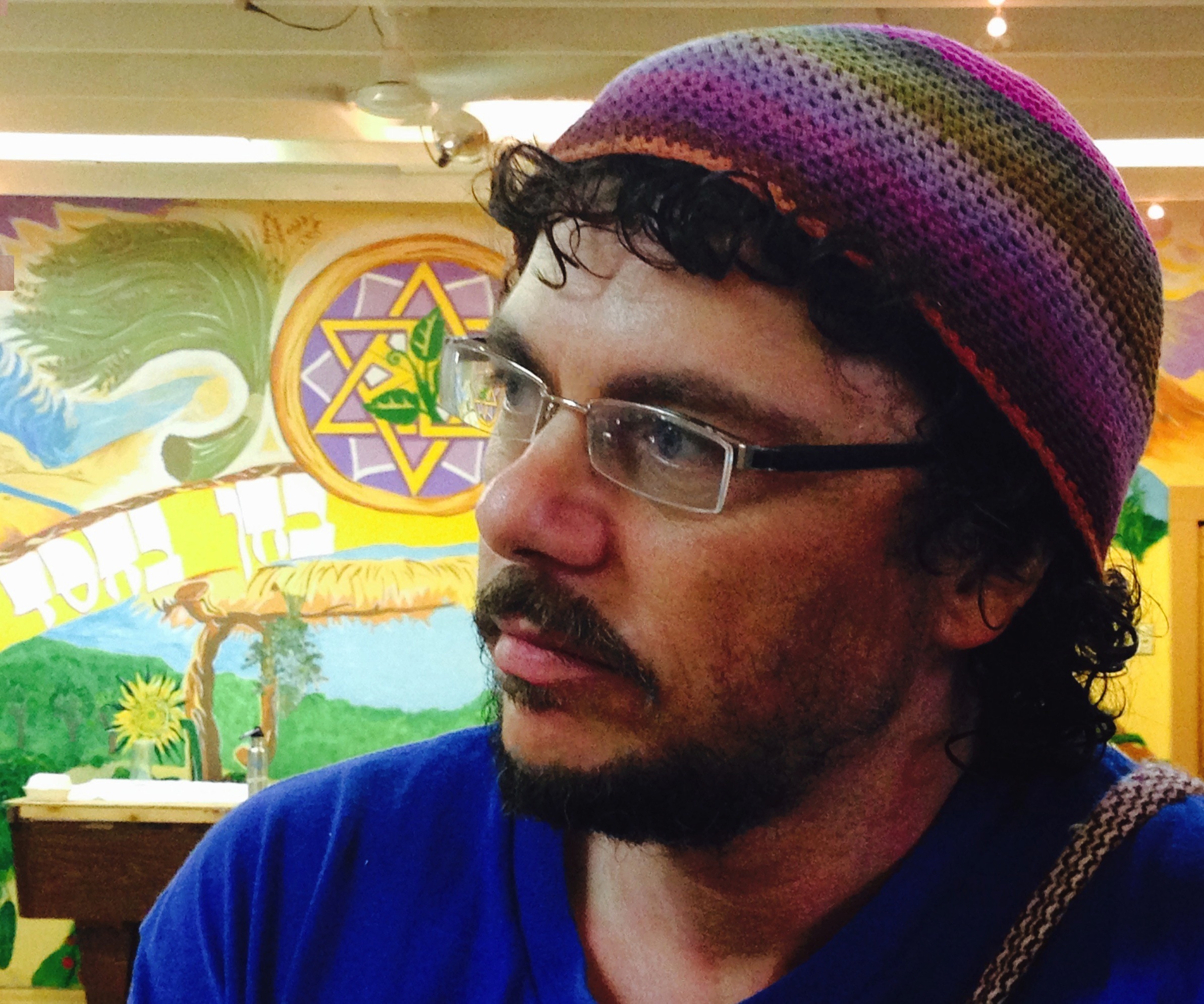Sustainable Agriculture Subscribe
A selection of initiatives, blogs, resources and communities on Jewcology which focus on sustainable agriculture.
Blogs
Earth Etude for Elul 21: The Food We Eat
by Leora Mallach ~ The severe drought affecting the northeast this growing season is causing farmers to apply for federal disaster relief (they must prove at least 30% crop loss to qualify). According to USDA data, Massachusetts topsoils were 25% drier in July 2016 than the 10 year mean, and there are mandatory water restrictions in many towns. The National Drought Mitigation Center (NDMC), established at the University of Nebraska-Lincoln in 1995, tells us: Drought is an insidious hazard of nature. It is often referred to as a "creeping phenomenon" and ...
A Rosh Hashanah Message: Is God’s ‘Very Good’ World Approaching a Catastrophe?
Rosh Hashanah commemorates God's creation of the world. The “Ten Days of Repentance” from Rosh Hashanah to Yom Kippur is a period to evaluate our deeds and to do teshuvah (repentance) for cases where we have missed the mark. Sukkot, which starts a few days after Yom Kippur, is a holiday in which we leave our fine houses and live in temporary shelters (sukkahs) to commemorate our ancestors’ journey in the wilderness. Hence, the upcoming weeks provide an excellent time to consider the state of the planet's environment and what we might do to help shift the world onto a ...
Tips for a Native Garden
~ Although late summer or early fall may seem like an odd time to begin a garden, it is a great time to plan the garden and get plants and flowers into the ground before cold weather hits. If you are thinking about planting a garden, consider creating a native garden as the best way to restore native ecosystems and be kind to the environment. What better way to follow the important goal that Judaism teaches to "till and tend God's creation, the Earth." Why Use Native Plants? Before planting a native garden, it is important to have a grasp of what native plants are. By ...
Elul: A Time to Start Shifting Our Imperiled Planet onto a Sustainable Path
The Hebrew month of Elul has arrived. It is the traditional time for heightened introspection, a chance to consider teshuva, improvements in our lives, before the “Days of Awe,” the days of judgment, the “High Holidays” of Rosh Hashanah and Yom Kippur. The shofar is blown every morning (except on Shabbat) in synagogues during the month of Elul to awaken us from slumber, to remind us to consider where we are in our lives and to urge us to make positive changes. How should we respond to Elul today? How should we respond when: Science academies worldwide, 97% ...
Tisha B’Av and Vegetarianism
There are many connections between vegetarianism (and veganism) and the Jewish holiday of Tisha B'Av: 1. Tisha B'Av (the 9th day of the month of Av) commemorates the destruction of the first and second Temples in Jerusalem. Today the entire world is threatened by climate change, and modern intensive livestock agriculture is a major contributor to greenhouse gas emissions. 2. In Megilat Eichah (Lamentations), which is read on Tisha B'Av, the prophet Jeremiah warned the Jewish people of the need to change their unjust ways in order to avoid the destruction of Jerusal...
10 Top Reasons to Read “Who Stole My Religion? Revitalizing Judaism and Applying Jewish Values to Help Heal Our Imperiled Planet”
Who Stole My Religion?: 1. Generates interest and discourse on the future of Judaism and our imperiled planet because of its challenging analyses. 2. Delivers a critical analysis of Orthodox Judaism’s views on climate change and politics. 3. Argues that vegetarianism, and especially veganism, is the diet most consistent with Jewish teachings and is essential to efforts to avert a climate catastrophe. 4. Offers a possible viable solution to the Israeli-Palestinian conflict. 5. Provides a radical approach to reducing terrorism. 6. Discusses how to ...
“Who Stole My Religion?” has been published!
HERE'S WHAT PEOPLE ARE SAYING ABOUT THIS UPDATED BOOK BY RICHARD SCHWARTZ. The many endorsements below are included to show that it is not just the author, but also many other people – of various perspectives – who think their religion has been “stolen,” but who still believe that religious values have relevance to current issues. It is our hope that the voices of the people who submitted the statements below, as well as many more voices, will be raised to help revitalize Judaism and other religions and to apply religious values effectively in response to the ...
Restoring Eden: Behar and Bechukotai
The loss of Eden near the beginning of Genesis sets in motion the entire saga of the Torah. In fact, the Torah can be read as one long quest to regain Eden. But what does a restored Eden look like? One of Eden’s characteristics was that none of the animals ate each other, and, more specifically, human beings had no permission to eat any of the other animals. Instead, human beings and all the animals shared the plants for food. This motif of sharing and non-violence between species is used as a signal throughout Tanakh (scripture) to let us know when we are talking ...
Kosher Palm Oil
Until recently I thought I understood the problem with palm oil. I thought palm oil meant unethical agricultural practices causing the destruction of equatorial rainforests, driving Orangutans to extinction and contributing significantly to climate change. I believed that products where palm oil was listed as an ingredient are worse than those where palm oil is not listed as an ingredient. I understood that environment groups advocated boycotting manufacturers that use palm oil until they substituted with an alternative. And then I visited Melbourne Zoo where I listened ...
Review of “Who Stole My Religion? Revitalizing Judaism and Applying Jewish Values to Help Heal Our Imperiled Planet
HOW JEWISH TEACHINGS CAN HELP SAVE THE PLANET ------------------ Review in the Jewish Georgian, “the largest Jewish newspaper in the South,” by Lewis Regenstein, president of The Interfaith Council for the Protection of Animals and Nature, and author of the book “Replenish the Earth: The Teachings of the World’s Religions on Protecting Animals and Nature.” ---------- Dr. Richard Schwartz, an expert on Jewish teachings on the environment, vegetarianism, and animals, has given us a preview of his new book, due out by early July 2016, on the environmen...
A Shavuot Message: Applying Torah Values To Our Diets
Since Shavuot is z'man matan Torateinu (the commemoration of the giving of the Torah to the Israelites on Mount Sinai), many dedicated religious Jews admirably stay up the entire first night of Shavuot to hear talks about and discuss Torah teachings. Among these Torah teachings are that Jews should preserve human health, treat animals with compassion, protect the environment, conserve natural resources, help hungry people, and pursue peace. By becoming vegetarians, and preferably vegans, Jews would be partaking in a diet that is most consistent with these basic ...
Lag B’Omer & Vegetarianism (or Veganism): Making Every Day Count
By Daniel Brook & Richard H. Schwartz Lag B’Omer is considered a minor holiday in the Jewish calendar, but even a minor holiday is worth celebrating. A great way to celebrate Lag B’Omer is through veganism, as Lag B’Omer is deeply connected to veganism. If not quite ready for veganism, a shift to vegetarianism would be a great initial step. Lag B’Omer represents the 33rd day of the counting of the omer, the fifty days from Passover and Shavuot, reminding us of the link between these two holidays. While Passover celebrates our freedom from slavery, Shavuot ...
The Jewish Imperative of an Animal-Free Diet
Jeffrey Cohan, the Executive Director of Jewish Veg, is coming to Teaneck, NJ. He will be leading an hour-long, interactive presentation at Congregation Beth Sholom on the significance of Tza'ar Baalei Chayim (the Jewish mandate to prevent animal suffering) in our contemporary world. This event begins at 7 pm and is free and open to the public.
SACRED EARTH, SACRED TRUST
A Day of Prayer & Action for People and Planet. Sunday, June 12 FAITHS RISING FOR PEOPLE & PLANET Sacred Earth, Sacred Trust is a worldwide, multi-faith day of prayer & action for the planet and a call for world leaders to commit to a 1.5 degree limit on global temperature rise. Six months after world leaders reached the Paris Agreement, communities around the world will come together in a day of beautiful commitment and blessing for the earth. 1°C OF WARMING MEANS EVERYTHING The adopted Paris Agreement is an incredible first step, but much of ...
Climate Catastrophe or a Sustainable Future – It Depends On Our Food Choices
Climate experts from 195 countries have gathered in Paris working to come up with an agreement that will help avert a climate catastrophe. However, they are overlooking an important factor and this threatens the success of their meeting. Here are some important reasons that it is essential to address climate change: Science academies worldwide, 97% of climate scientists, and 99.9% of peer-reviewed papers on the issue in respected scientific journals argue that climate change is real, is largely caused by human activities, and poses great threats to humanity. Every ...
Conserving Our Oil: A Chanukah Message
Richard H. Schwartz The Jewish festival of Chanukah commemorates the miracle of the oil that was enough for only one day, but miraculously lasted for eight days in the liberated Temple in Jerusalem. Hence, this holiday is a good time to consider our own use of fuel and other resources. Like Chanukah’s miraculous extension of scarce resources, vegetarianism also allows the increasingly scarce resources of our contemporary world to go much further. This is no trivial matter, since it is expected that future conflicts between nations might involve scarcities ...
Is Eating Meat a Mitzvah that Comes from an Aveirah (Transgression)?
Judaism places much stress on performing mitzvot, carrying out God's commandments. However, a "mitzvah haba'ah b'aveirah" - a mitzvah based on an aveirah (sin or "illegitimate means") - is forbidden and is not considered a mitzvah. For example, if one uses a stolen lulav and esrog on Sukkot, it is not a proper mitzvah. Similarly, if money is stolen, it cannot be used to give tzedakah (charity). In fact, the sages indicate that it is better not to do the mitzvah at all than to do a mitzvah haba'ah b'aveirah. Eating meat is arguably a mitzvah haba'ah b'aveirah, actually ...
Dialogue Between a Jewish Vegetarian Activist and a Rabbi
For a long time, I have been trying to start a respectful dialogue in the Jewish community. Because I have had very little success, I am presenting the fictional dialogue below. I hope that many readers will use it as the basis of similar dialogues with local rabbis, educators, and community leaders. Jewish Vegetarian Activist: Shalom rabbi. Rabbi: Shalom. Good to see you. JVA: Rabbi, I have been meaning to speak to you for some time about an issue, but I have hesitated because I know how busy you are, but I think this issue is very important. Rabbi: Well, that ...
Inconsistencies Between Animal-Based Diets and Basic Jewish Values
And God said: "Behold, I have given you every herb yielding seed which is upon the face of all the earth, and every tree that has seed-yielding fruit -- to you it shall be for food." (Genesis 1:29) There are many inconsistencies between basic Jewish values and the realities of animal-based diets: 1. While Judaism mandates that people should be very careful about preserving their health and their lives, numerous scientific studies have linked animal-based diets directly to heart disease, stroke, many forms of cancer, and other chronic degenerative diseases. 2. ...







